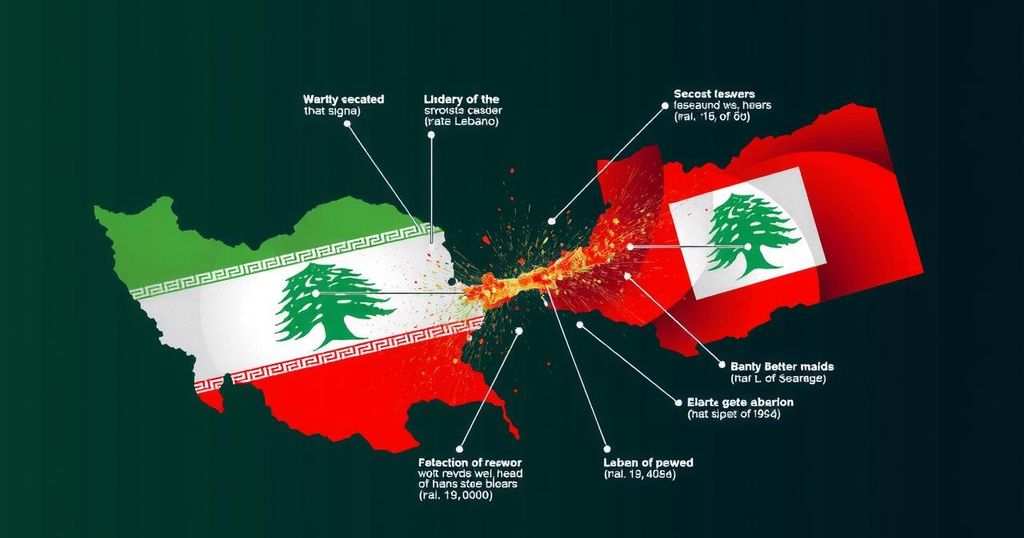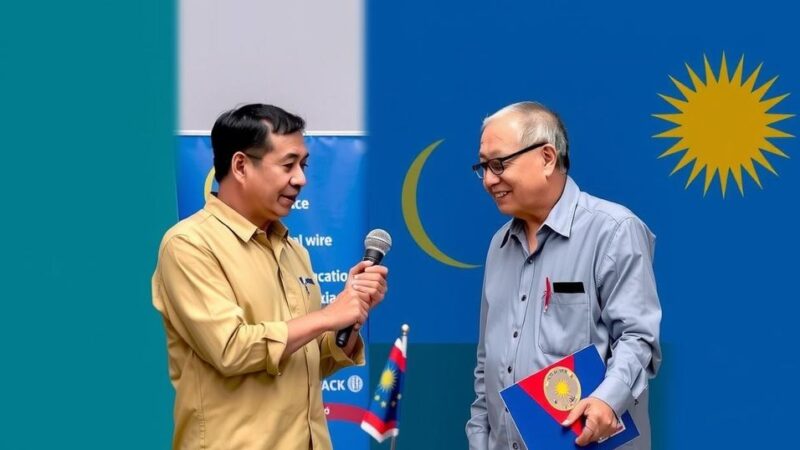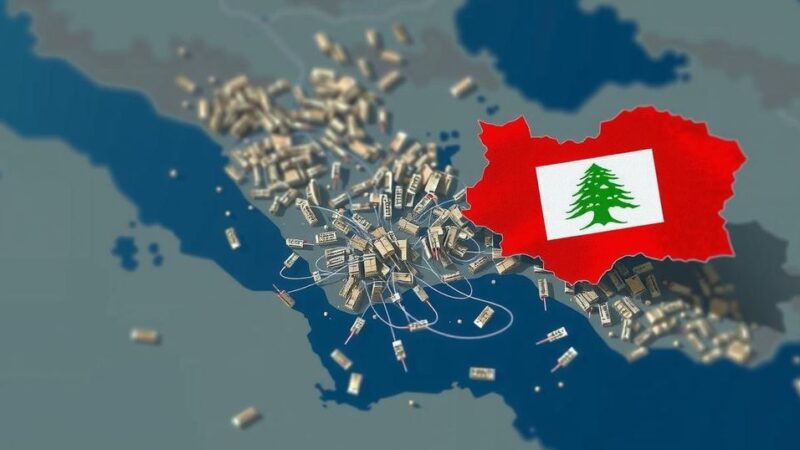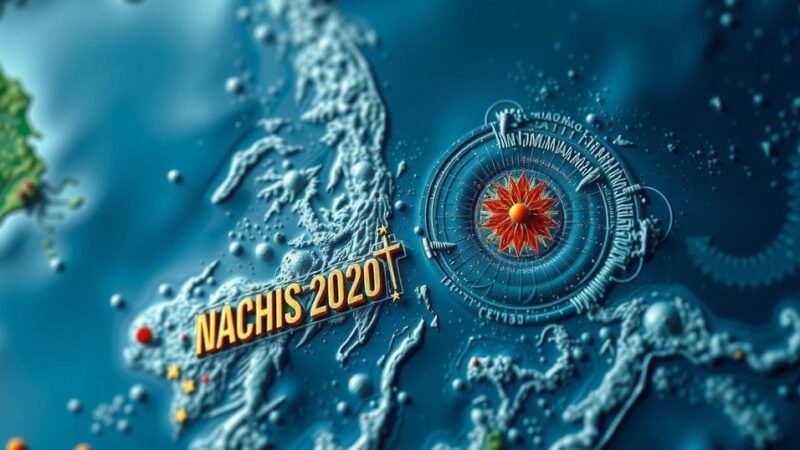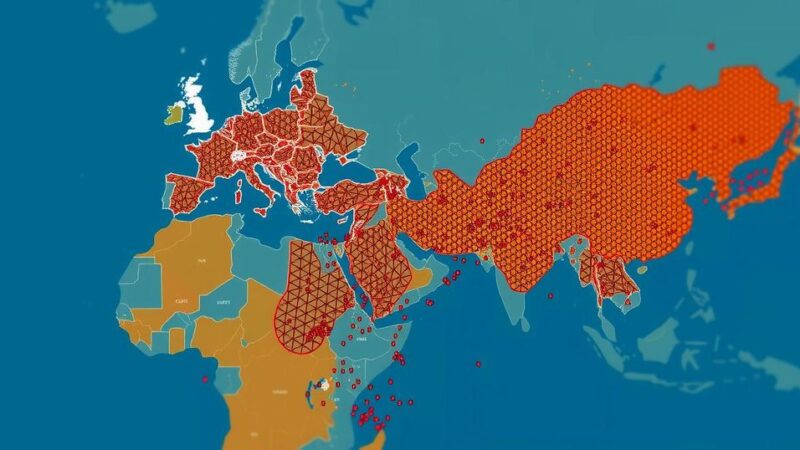Iran is solidifying its support for Hezbollah amidst potential ceasefire talks with Israel. Iranian Foreign Minister Abbas Araghchi praised the Lebanese resistance, while Iran continues military aid to Hezbollah. As the region awaits a ceasefire, the implications for Iran’s strategies, including possible nuclear armament and escalated proxy conflicts, remain critical amid changing U.S. leadership.
The potential for a ceasefire between Israel and Hezbollah has prompted Iranian Foreign Minister Abbas Araghchi to reaffirm Iran’s support for the “resistance” movement in Lebanon. During a recent conversation, Araghchi emphasized Iran’s commitment to the Lebanese populace and government, coinciding with the dispatch of a medical mission to Lebanon as a demonstration of solidarity. Meanwhile, Iran continues to covertly supply Hezbollah with weapons, highlighting its enduring military support amid regional tensions. Iran’s backing of the Lebanese resistance aligns with its strategic objectives in the region, particularly in the context of the ongoing conflict with Israel.
The ceasefire holds significant implications for Iran and its regional aspirations. It may serve as a pivotal point, especially given Iran’s attempts to consolidate Hezbollah’s relationship with Hamas in the wake of the October 7 attack against Israel. Hezbollah’s involvement in the conflict appears to have been somewhat reactive, as it is believed they were unaware of the attack’s timing. This situation calls into question the extent of Hezbollah’s agency in the conflict and raises concerns about the faction’s capacity to engage in a war on its terms.
Recent developments indicate a shift in the dynamics between Hezbollah and Israel, particularly after Israeli forces conducted operations aimed at neutralizing Hezbollah’s presence along the border. Israel’s increased military activity emphasizes its commitment to reclaiming strategic territories. The Israeli Defense Forces (IDF) have made symbolic gains, underscoring their determination to disrupt Hezbollah while contemplating a potential ceasefire. This context serves as a backdrop for Iran as it evaluates its own strategic choices amid this evolving situation.
As Iran contemplates its next steps, it finds itself at a critical juncture reminiscent of historical turning points. The prospect of intensifying its nuclear capabilities looms large, alongside the possibility of escalating proxy conflicts in Iraq and Syria aimed at targeting Israel. Should a ceasefire endure, particularly within a 60-day framework that aligns with the impending transition of the U.S. presidency, Iran’s decisions in the coming weeks will undoubtedly influence regional stability. The decisions made could either pivot towards nuclear development or an offensive posture against Israel through its proxy forces, thus determining the trajectory of Iran’s involvement in the ongoing regional conflicts.
The article unfolds against the backdrop of heightened tensions between Israel and Hezbollah, particularly following the escalation of conflict after the Hamas attack on October 7. Iran’s strategic interest in supporting Hezbollah serves as a counterbalance to its adversaries in the region. The historical complexity of the Iran-Hezbollah alliance highlights Iran’s role as a significant player in the Levantine conflict. As a key supporter of the Lebanese militia organization, Iran’s actions are scrutinized in light of potential shifts in military posture in response to prospective ceasefire agreements. The implications of U.S. foreign policy shifts under the incoming administration further complicate Iran’s regional calculations, particularly concerning its nuclear ambitions and proxy engagements.
In summary, Iran’s response to a potential ceasefire between Israel and Hezbollah is poised to shape future regional dynamics significantly. The ongoing support for the Lebanese resistance, coupled with Iran’s strategic evaluations regarding nuclear capability and proxy warfare, will dictate its actions in the coming weeks. With the close alignment of a ceasefire to pivotal U.S. political changes, Iran must carefully navigate its choices to capitalize on the evolving situation while addressing vulnerabilities posed by its adversaries.
Original Source: www.jpost.com
